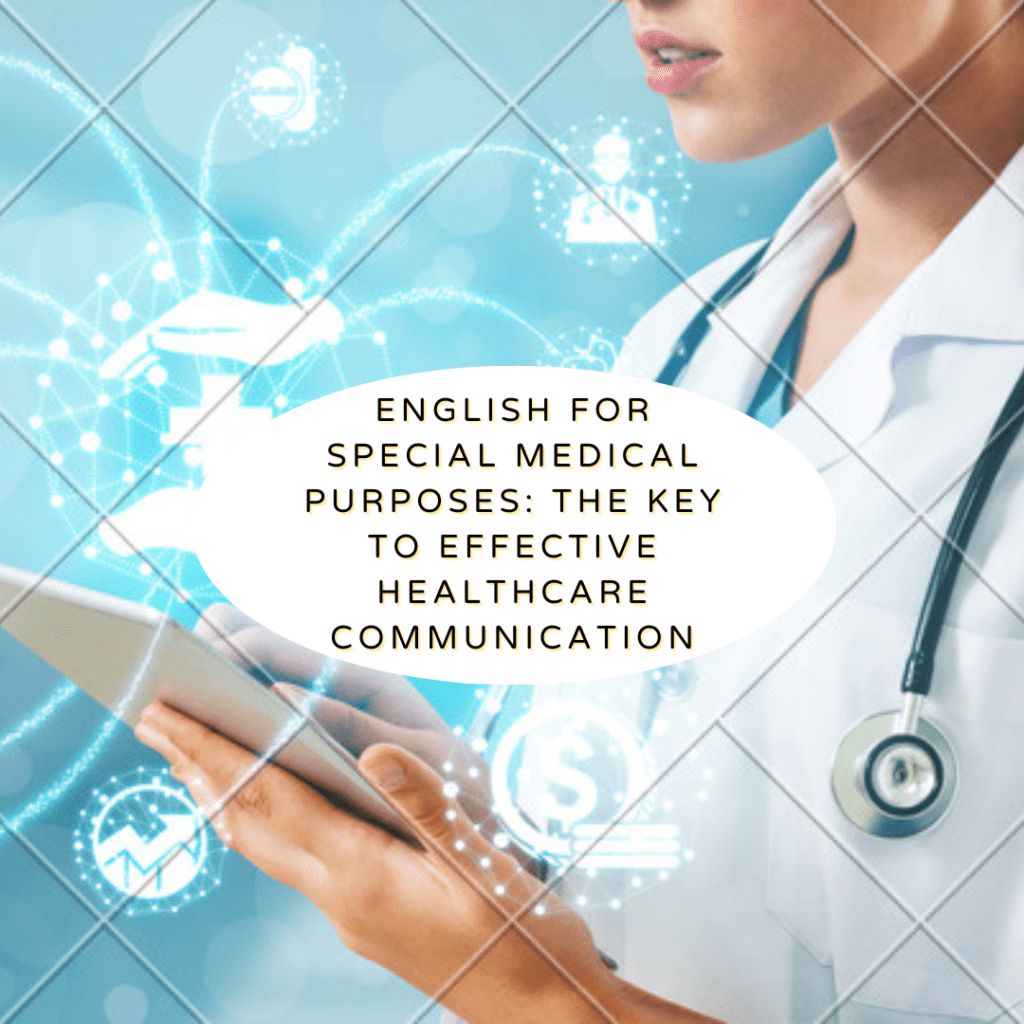English for Special Medical Purposes: The Key to Effective Healthcare Communication

In today’s globalized world, the ability to communicate effectively in English has become an increasingly important skill for healthcare professionals. With the rise of medical tourism and international patients seeking medical treatment, healthcare providers must be proficient in English to provide accurate and efficient healthcare services. This is where English for Special Medical Purposes (ESMP) comes in.
ESMP is a specialized area of English language teaching that focuses on the use of medical terminology, phrases, and concepts in various medical contexts. It provides healthcare professionals with the language skills necessary to communicate effectively with patients and colleagues, both domestically and abroad.
One of the benefits of ESMP is its ability to enhance patient safety. Miscommunication due to language barriers can lead to serious medical errors, putting patients’ health and safety at risk. ESMP can help to minimize the potential for miscommunication by providing healthcare professionals with the language skills they need to communicate effectively with patients, including discussing medical histories, diagnoses, treatments, and medications.
ESMP is also a valuable tool for healthcare professionals seeking to advance their careers. Many healthcare organizations require employees to have a certain level of English proficiency to work in their institutions. By acquiring ESMP skills, healthcare professionals can open up new career opportunities and advance their careers.
To achieve success in ESMP, healthcare professionals must work with qualified teachers who specialize in this area. They need teachers who can provide customized, interactive, and engaging English language training that is tailored to their specific medical context. This will help them develop their language skills quickly and effectively, enabling them to communicate with patients and colleagues more confidently and accurately.
In conclusion, English for Special Medical Purposes is a critical aspect of healthcare communication, especially in today’s globalized world. Healthcare providers who invest in ESMP training will have the language skills they need to communicate with patients and colleagues more effectively, which can lead to improved patient safety, better healthcare outcomes, and career advancement opportunities.
Here are some examples of ESMP vocabulary:
- Diagnosis: The identification of a disease or medical condition.
- Treatment: The medical care or attention given to a patient for an illness or injury.
- Medication: A substance used to treat or cure an illness or medical condition.
- Symptoms: Physical or emotional changes or signs that indicate the presence of a disease or medical condition.
- Prognosis: A medical professional’s prediction about the outcome of a disease or medical condition.
- Anesthesia: A drug or medical technique used to numb a patient’s body or part of it to reduce pain during surgery or other medical procedures.
- Radiology: The medical specialty that deals with the diagnosis and treatment of diseases using medical imaging technologies such as X-rays, CT scans, MRI, and ultrasound.
- Oncology: The medical specialty that deals with the diagnosis, treatment, and prevention of cancer.
- Pediatrics: The medical specialty that deals with the medical care and treatment of infants, children, and adolescents.
- Cardiology: The medical specialty that deals with the diagnosis, treatment, and prevention of diseases of the heart and blood vessels.
- One book that can help improve ESMP is “Medical English Dialogues: Clear & Simple Medical English Vocabulary for ESL/EFL Learners This book is designed specifically
- Pick up a copy of the book today if you want to…
- Interact more easily with your patients
- Learn some new English idioms and phrases
- Have a variety of authentic dialogues at your fingertips
- Improve your American English
- Speak English fluently and confidently
- Have some fun while learning English
- Here are some free online resources that can help improve ESMP:
- MedlinePlus: This is a comprehensive website that provides information on various medical conditions, medications, and treatments. The website is available in English and provides easy-to-understand language for patients and medical professionals alike.
- American Medical Association (AMA) Resources: The AMA provides free resources for medical professionals to improve their communication skills in English. These resources include podcasts, webinars, and online courses.
- EnglishMed: This website provides medical English resources for non-native speakers. It includes vocabulary lists, quizzes, and exercises to help learners improve their medical English skills.
- TeachMed: This website offers a range of resources for medical English teachers and learners, including lesson plans, activities, and worksheets.
- Medscape: This website provides free medical news, information, and education for healthcare professionals. It covers a range of medical topics and provides resources for improving English skills in a medical context.